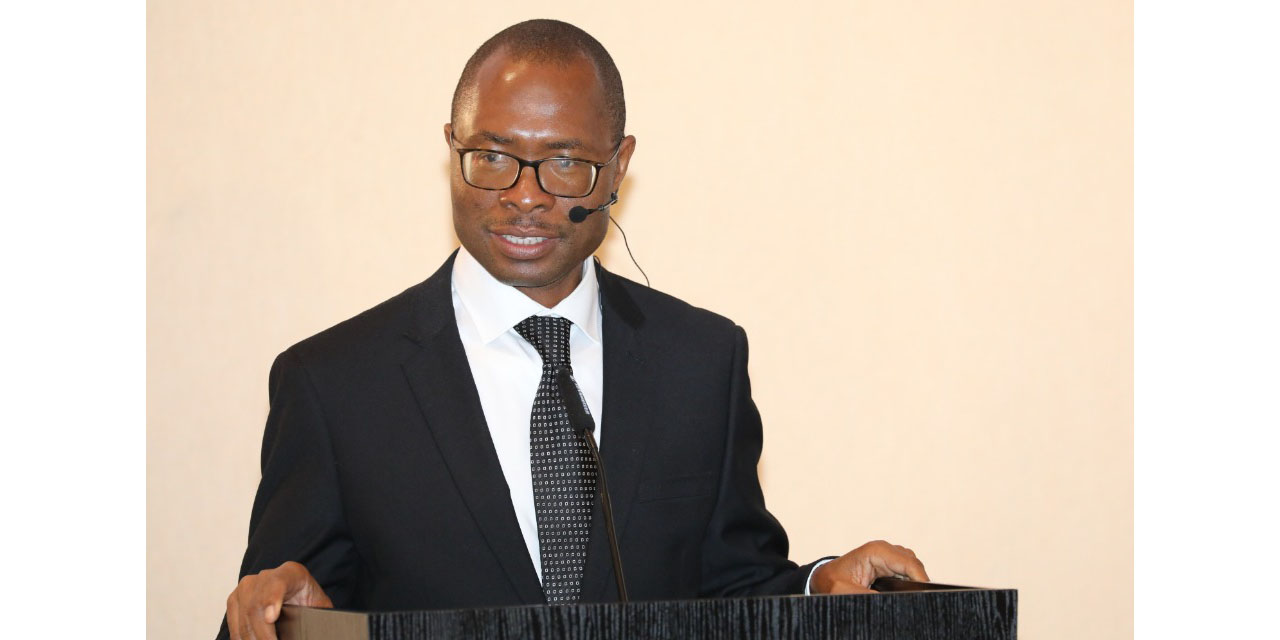Staff Writer
The Minister of Finance has announced an additional expenditure of four billion dollars in the 2022/23 Mid-year Review Budget.
Tabling the additional budget this afternoon, Iipumbu Shiimi said the additional allocations reflect pressing and urgent priorities which could not be deferred to the upcoming main budget.
The additional expenditure takes the operational expenses from N$56.6 billion to N$60.1 billion. The development budget has also been adjusted upwards from N$5 billion to N$5.5 billion.
The minister said that during the compilation of the review budget, ‘’additional expenditure requests to the tune of N$4 billion were received. At the same time, consideration of the additional cost of N$1.3 billion for the salary and benefit adjustments of civil servants as agreed to with the unions had to be made’’.
Thanks to the strong performance in revenue collections, the government could revise total revenues for 2022/23 financial year upwards by N$4.4 billion. Also, in the budget review process further potential savings were identified for re-allocation across votes to the tune of N$387.3 million.
Moving on the government debt, Minister Shiimi said, that debt is expected to increase to N$138.4 billion, equivalent to 69.6 percent of GDP in this financial year, and is projected to peak in the next financial year ‘’resulting in a stabilization of the debt ratios over the remainder of the MTEF, as nominal GDP growth outpace debt growth’’.
He warned that ‘’the high public debt levels continue to be central in the fiscal policy considerations over the medium term’’.
But, he assured the nation that the government will redirect much of the revenue increases in the coming years towards servicing debt.
‘’As such, we will focus on maintaining a positive primary budget balance over the medium term. At the same time, we will continue working in close collaboration with the private sector to diversify the economy and create new engines of growth.’’
Remaining with public debt servicing, Shiimi said, interest payments have been revised down slightly to N$9.1 billion, equivalent to 14.3 percent of projected revenues for the year.
‘’Debt servicing costs continue to trend above our desired benchmark of 10 percent of revenues.’’
Outlining other expenditure priorities, Shiimi said N$747.4 million of additional personnel expenditure was granted of which the lion share goes to the ministries of Health and Social Services as well as Education, Arts and Culture to primarily address the persistent under budgeting in these areas.
A total of N$872.9 million has been added on the goods and services budgets of various votes to cover, among others, projected shortfalls on utilities, funding to combat the outbreak of the foot and mouth disease and lung sickness, as well as to broadly stem the erosion of purchasing power in light of heightened inflation, particularly on transport, he told the house.
N$531 million has been set aside for subsidies and other transfers to Government organisations to cover, among others, shortfalls on student funding at NSFAF and the refurbishment of locomotives for TransNamib and N$99.3 million for the acquisition of capital assets primarily to purchase medical equipment to support the medical internship programme.
To address social justice issues, the government has allocated 5.2 million dollars to cushion the most vulnerable members of society against rising food prices through increasing the monthly Conditional Income Grant for former food bank recipients from N$500 to N$600 effective October 2022.
The government has also reduced the allocations to the Public Service Employee Medical Aid Scheme by one billion dollars over a two-year period starting next financial year ‘’to capture expected gains from envisaged reforms to the benefit structure of the scheme’’.
‘’We are committed to implement reforms that will reduce expenditure by N$500 million per annum in FY2023/24 and FY2024/25. Accordingly, such expected savings have been incorporated into the medium-term expenditure forecasts,’’ Shiimi said.




